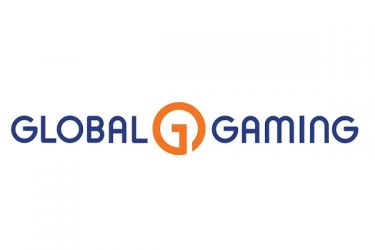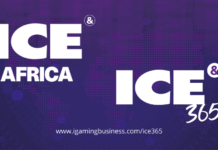 Troubled operator Global Gaming reported an operating loss of almost SEK40m (€3.7m/$4.1m) during the third quarter of 2019 as it paid the price for its licence being revoked in Sweden, its main market.
Troubled operator Global Gaming reported an operating loss of almost SEK40m (€3.7m/$4.1m) during the third quarter of 2019 as it paid the price for its licence being revoked in Sweden, its main market.
In its Q3 results, the owner of Ninja Casino said operating loss was at SEK37.6m, compared to a profit of SEK60.3m in the same period last year.
Revenue fell by 76% to just SEK60.3m for the period from 1 July to 30 September, with Global Gaming having had its Swedish licence revoked by regulator Spelinspektionen on 17 June for “serious deficiencies” in business practices.
Since losing its licence, Global Gaming has recommenced activities in Sweden by rolling out the white label brand NanoCasino through its partnership with igaming technology and platform provider Finnplay Group.
 Despite the loss of its licence in Sweden, Ninja Casino still accounted for 90% of the group’s revenue for Q3. During the quarter, revenue from the Nordic operation amounted to SEK47.1m, with a further SEK7.0m coming from operations in the rest of Europe to SEK7.0m and SEK6.2m from B2B partnerships.
Despite the loss of its licence in Sweden, Ninja Casino still accounted for 90% of the group’s revenue for Q3. During the quarter, revenue from the Nordic operation amounted to SEK47.1m, with a further SEK7.0m coming from operations in the rest of Europe to SEK7.0m and SEK6.2m from B2B partnerships.
Depsite implementing measures to reduce business costs, this failed to prevent a significant loss for the period.
“Our situation is unsurprisingly still difficult and there are no magic tricks that can restore our results or the market’s confidence and belief that we can bounce back. All we can do is work hard with the determination to do just that – bounce back,” said Global Gaming chief executive, Tobias Fagerlund.
“Adapting the business to the circumstances restoring revenue-generation and growth is a long-term endeavour and will continue for a while yet, but I’m pleased to note that we are already able to see the results of our efforts. The effects of our restructuring, cost saving measures, changes in strategy and technology are immediately tangible.”
In Q3, personnel costs were up slightly at SEK23.9m, although almost SEK4m of this was related to restructuring costs such as redundancy pay. Marketing costs for Q3 amounted to SEK37.2m, which while almost half of the Q3 2018 figure were still higher than Global Gaming desired due to contractual commitments.
Global Gaming said total headcount in early 2020 will be fewer than 90, which is less than half what it was at the end of the second quarter of 2019. Its team in Malta has shrunk considerably and the technical team in Malmö has been removed entirely. The Swedish office, consisting mainly of corporate functions, will move to smaller and more appropriate premises in Malmö in early 2020.
“We estimate that at the beginning of the year [fixed cost base] will be over 50% lower than at the end of Q1 2019,” added Fagerlund.
Compared to the previous quarter, the gross margin increased by 10% due to the group not having to pay tax on gambling operations in Sweden.
Following a series of unsuccessful appeals against Spelinspektionen’s decision, Fagerlund said Global Gaming remains hopeful that Ninja Casino will return to the Swedish market but said “it’s important for me to stress that it is not our main focus”.
Looking ahead, Fagerlund said: “We have good and growing revenues from other markets and are focussing on launching our products and brands on other and new markets – which we’ll show in 2020.
“The collaboration we launched with Finnplay during the period proceeds as planned and we are truly pleased with its development. Q4 will see us transferring operations from our own technology platform and wholly onto theirs. We expect to fully reap the benefits of this transfer from the first quarter of 2020.
“Our vision is to be a global player, delivering top-class products and returns by being responsible, making data and knowledge-based decisions and by delivering quality on time.”
Global Gaming’s share price was up around 3% today (21 November) to SEK6.19. That price is down more than 80% since the start of 2019.












